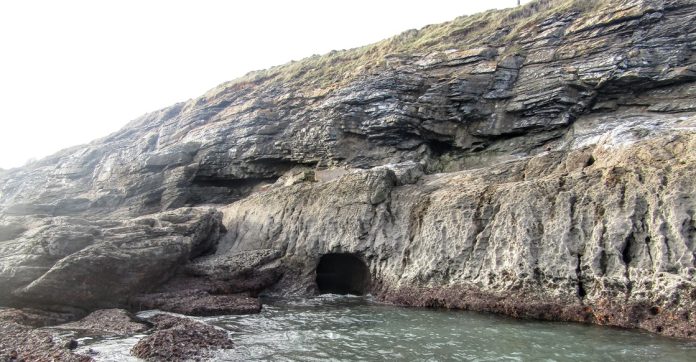Clare Doyle, London Socialist Party
The year 2024 opens as the old year ended – with private companies making vast profits out of ceaselessly releasing sewage into our rivers and seas. Hundreds of swimmers celebrating Boxing Day with a traditional dip on the beaches of the Isle of Wight had not been warned by Southern Water that untreated sewage had been flowing into the sea at Sandown on Christmas Day. Sewage was spilled on beach fronts where festive swimmers were expected to visit for a staggering 4,574 hours last year.
Thames Water
Newspapers have publicised the scandal of water companies paying out vast sums to executives and shareholders. On 15 December 2023, the Financial Times covered the appointment of a new Chief Executive to manage Thames Water, Britain’s largest water company, and its £18.3 billion debt pile. In June, it was in danger of falling into administration and “effectively being renationalised”, the paper said. The company is under investigation for a £37.5 million dividend payout in October. His pay and perks “could rise to £2.3 million if bonus targets are hit.”
The company could face substantial fines over sewage dumping after an Ofwat inquiry and is seeking to raise new equity to reverse the trend of increasing pollution and customer complaints, along with what the Times calls “industry-high rates of leakage in the mains pipes”. The new boss also wants to push up bills by 40%. Thames Water cites “financial troubles partly caused by bills being kept ‘very low’”. Rises in charges to customers amount to new attacks on ordinary working people’s living standards in order to line the pockets of the rich.
On a smaller scale, South East Water has managed to pay £2.5 million to shareholders despite losses which stemmed from failing to maintain the supply of water for several days in the summer. The Guardian reported that South East Water now plans to increase customer bills to pay for investment in infrastructure amounting to at least £20 a month.
And what is the record of the water company sharks in relation to actually doing their job?
Pollution
A recent Panorama programme dealing with the water pollution scandal concentrated on the north west of England and the company United Utilities, a company at which workers took strike action against the cost-of-living crisis in 2023. The company has 7 million customers and made £414 million profit last year. It released untreated sewage into its waterways for a total of 425,000 hours in 2022, the highest of all water companies. A representative of ‘Wildfish Environmental Group’ said 23 different pharmaceutical drugs were found in tests of water they carried out. Untreated sewage is released in vast quantities whenever it rains, and also when it doesn’t.
The Environment Agency did not test any of the numerous dead fish found in waterways. Examples were given of the tiny proportion of inspections that were carried out – “5% of pollution incidents attended to”.
An Environment Agency whistleblower gave her opinion to Panorama that United Utilities saw “Reputation and profit” as primary, and the health and safety of people and wildlife as secondary. “We dance to their tune!” she said. Of 931 incidents over three years, the Environment Agency had visited just six. Water companies are constantly downgrading incidents with the approval of the Environment Agency to avoid inspections.
United Utilities said it was regulating itself. It would face a £400,000 fine if it was found to have breached the existing laws. Yet there was evidence that five million litres of sewage had been ‘leaked’ into Sandon Dock over two hours and 20 minutes.
Private profit over public safety
The Tory government allows the water companies to continue their vast profit-making enterprises, with shareholders and directors receiving vast pay-outs. But, as the Tory Party unravels and Labour looks likely to win the next election, Labour’s leader, Keir Starmer, is travelling further to the right. He refuses to include the renationalisation of any privatised industries in the party’s programme, despite energy companies such as British Gas and E.ON posting billions of pounds of profits.
Shadow environment secretary Steve Reed recently said that Labour “will give the water regulator powers to block the payment of any bonuses until water bosses have cleaned up”.
At the time of the last election, Labour, under the leadership of Jeremy Corbyn, promised to renationalise both water and energy. We need a programme of wholesale renationalisation of all industries privatised under Margaret Thatcher and plundered for profit ever since. Not a penny compensation should be paid to the millionaires who rake in the profits by allowing our rivers, lakes and seas to be polluted. They have been made out of bounds for the growing number of people in Britain – young and old – who look to improve their health and longevity by swimming in them. 1,000 public swimming pools have closed since 2010, 2,000 could be lost forever by 2030, and one in four children leaving primary school cannot swim the government-prescribed 25 metres unaided.
These water companies should be nationalised and put under democratic workers’ control and management as part of a wider planned economy, so we can make the investments needed to end pollution and lower our bills, instead of allowing resources to be siphoned off as profit into the pockets of the rich.
- Since publication in print this article has been edited with minor corrections







